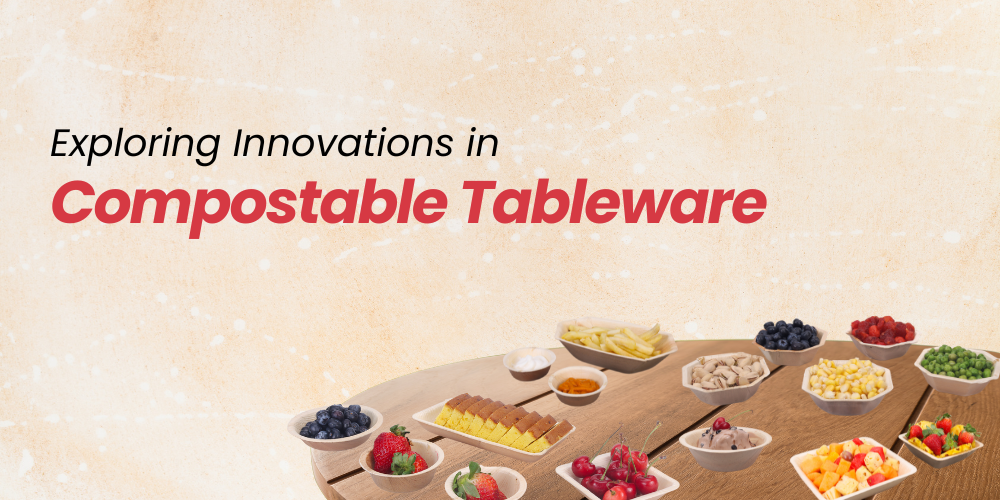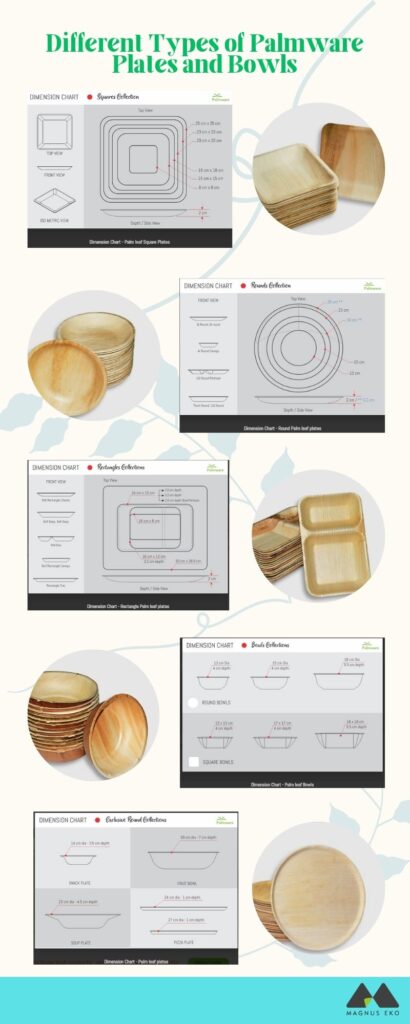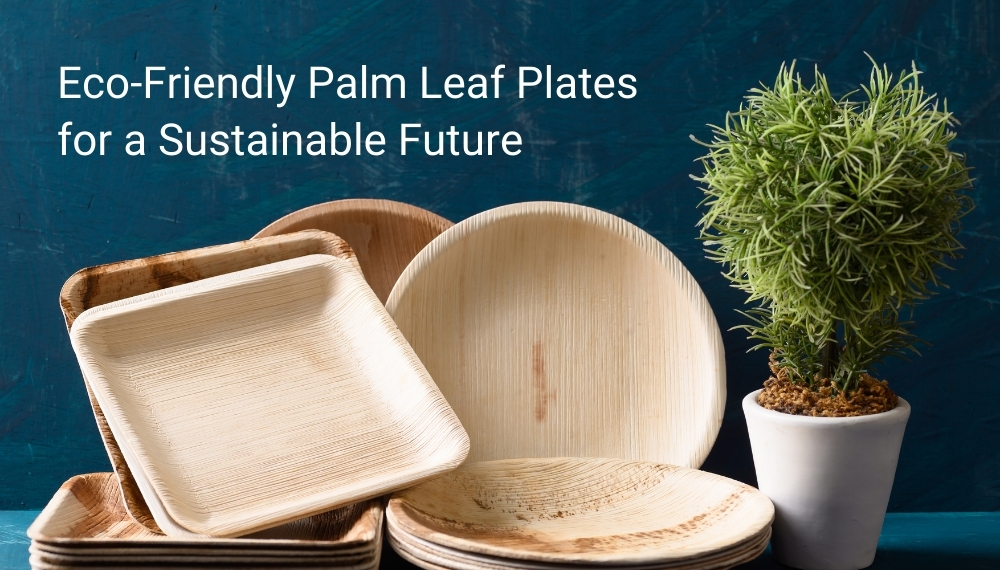What Is Compostable Tableware?
Compostable tableware refers to plates, cups, cutlery, and other disposable items made from materials that break down into organic matter under composting conditions. Unlike biodegradable products, which may take years to degrade and can sometimes leave harmful residues, compostable tableware decomposes in a matter of weeks or months, leaving behind nutrient-rich compost. Compostable tableware is an ideal solution for reducing waste, particularly when paired with proper waste management systems.
Compostable vs. Biodegradable vs. Recyclable: Understanding the Differences
The terms compostable, biodegradable, and recyclable are often used interchangeably, but they refer to different processes:
- Compostable items break down into organic matter that enriches the soil. However, they typically require industrial composting facilities with specific conditions like high heat and controlled humidity
- Biodegradable products degrade over time but might leave behind microplastics or toxic residues, especially if made from synthetic materials
- Recyclable materials can be processed and reformed into new products but don’t necessarily decompose into natural substances
Understanding these distinctions is essential for consumers to make informed choices and ensure proper disposal methods.
The Materials Behind Compostable Tableware
A key innovation in compostable tableware lies in the variety of natural materials used. These materials are not only eco-friendly but also renewable, helping to reduce the reliance on fossil fuels.
- Palm Leaves: Fallen palm leaves are molded into plates and bowls, offering a natural and compostable alternative
- PLA (Polylactic Acid): A biodegradable polymer derived from corn starch or sugarcane. It’s commonly used to make clear, plastic-like cups and containers
- Bagasse: The fibrous byproduct remaining after sugar is extracted from sugarcane. It’s a versatile material used to make plates, bowls, and other tableware items
- Bamboo: A fast-growing, renewable resource, bamboo is used for sturdy and durable utensils and plates
- Cornstarch: Corn-based polymers are also gaining traction for their ability to replicate the texture and durability of conventional plastics while being fully compostable
Palm Leaf Tableware: Renewable Resources for Tableware
Palm leaf tableware is a common biodegradable option that can be used instead of disposable paper plates. Made from dried leaves that fall naturally from the tree, palm leaf products are harmless organic materials with numerous health benefits.
PLA: A Key Ingredient in Compostable Tableware
Polylactic acid (PLA) is one of the most commonly used materials in compostable tableware due to its versatility and strength. Made from fermented plant starches, PLA resembles traditional plastics but decomposes much more quickly in industrial composting environments. PLA is used in various products, from cold beverage cups to cutlery.
Polyhydroxyalkanoates (PHAs)
These natural polymers produced by bacteria are gaining popularity due to their excellent mechanical properties and biodegradability. PHAs can be used to create durable and compostable tableware.
Bagasse: Turning Sugarcane Waste into Sustainable Tableware
Bagasse, a by-product of the sugar industry, is an excellent example of how waste materials can be transformed into valuable products. When sugarcane is processed, the fibrous pulp left behind is molded into plates, bowls, and trays. These strong, durable, and compostable items make bagasse a popular material for sustainable tableware.
Bamboo: Renewable Resources for Tableware
Bamboo is one of the fastest-growing plants on earth, making it an ideal renewable resource for sustainable products. Bamboo utensils and plates are strong, durable, and compostable.
Compostable Biopolymers
- Chitosan: Derived from chitin, the main component of crustacean shells, chitosan is a biodegradable polymer with antimicrobial properties. It is used in food packaging and tableware applications
- Alginate: Extracted from seaweed, alginate is a natural polymer with excellent film-forming properties. It is used in food packaging and edible coatings for tableware
Innovations in Design and Functionality
Compostable tableware has come a long way from its early iterations. Innovations in design and technology have made these products more durable and functional, providing to both individual consumers and large-scale food service operations.
Strength and Durability of Modern Compostable Tableware
One of the primary concerns with early versions of compostable tableware was their lack of strength and durability. However, advances in material science have allowed for the development of compostable products that are just as strong and reliable as their plastic counterparts. Modern compostable plates, utensils, and cups can withstand heavy foods and liquids without bending or leaking.
Heat and Water Resistance in Compostable Materials
Another area of innovation is the ability of compostable tableware to resist heat and moisture. Products made from materials like Palm Leaf, PLA, and bagasse are now designed to hold up to hot soups, coffee, and greasy foods without breaking down prematurely. This makes them suitable for a wider range of applications, from casual dining to gourmet food presentations.
Microwave and Oven Safe Tableware
New advancements have allowed for the creation of compostable tableware that can be safely used in microwaves and even conventional ovens. This offers a major convenience factor for consumers and food service businesses, making compostable alternatives more appealing for everyday use and reheating takeout meals.
Home-Compostable Products
While many compostable tableware items require industrial composting conditions, new materials are being developed to break down in home composting systems. These products can decompose in a backyard compost pile without requiring the higher temperatures and specific conditions of commercial compost facilities, further expanding their appeal.
Technological Advancements in Compostable Materials
Ongoing research into new materials and production methods will likely lead to even more durable, affordable, and effective compostable products. Innovations in bio-based materials and enhanced composting processes will further reduce the environmental impact of single-use items.
Government Policies Supporting Sustainable Alternatives
Governments around the world are beginning to implement policies that encourage or mandate the use of compostable products. For example, the European Union’s ban on certain single-use plastics has prompted businesses to explore compostable alternatives. Similar regulations in other countries are expected to drive further growth in the compostable tableware market.
How Brands and Restaurants Are Adopting Compostable Tableware
In response to growing consumer demand for sustainable products, many brands and restaurants are making the switch to compostable tableware.
Fast-Food Chains Transitioning to Compostable Solutions
Notable fast-food chains like McDonald’s, Starbucks, and Chipotle have introduced compostable tableware in select locations as part of their broader sustainability efforts. These companies are setting an example for others in the industry, demonstrating that it’s possible to offer convenience without compromising the environment.
Large Events Going Green
Music festivals, conferences, and sporting events are increasingly adopting compostable solutions to reduce their environmental impact. Events like Coachella and the London Marathon have made headlines for their commitment to using compostable plates, cups, and utensils, significantly reducing waste generation.
Wrap Up
As we move forward, it’s not just about swapping plastic for compostable materials. It’s about choosing to care. It’s about recognizing that the small, everyday decisions we make ripple out to protect our oceans, our wildlife, and the world we leave behind for future generations.
Are you looking to add a touch of “wow” to your eco-friendly tableware? We are an eco-friendly palm leaf tableware manufacturer that offers a sustainable alternative to traditional disposable tableware. Our manufacturing process is designed to ensure high-quality products with minimal environmental impact. We use a state-of-the-art facility and a skilled team to produce hygienic and beautiful palm leaf dinnerware.
Head to our Manufacturing Process page to see our commitment to ethical production, and browse our Products to find the perfect palm leaf plates for your next gathering!
Time is of the essence. Share it! Let’s spread the word.



